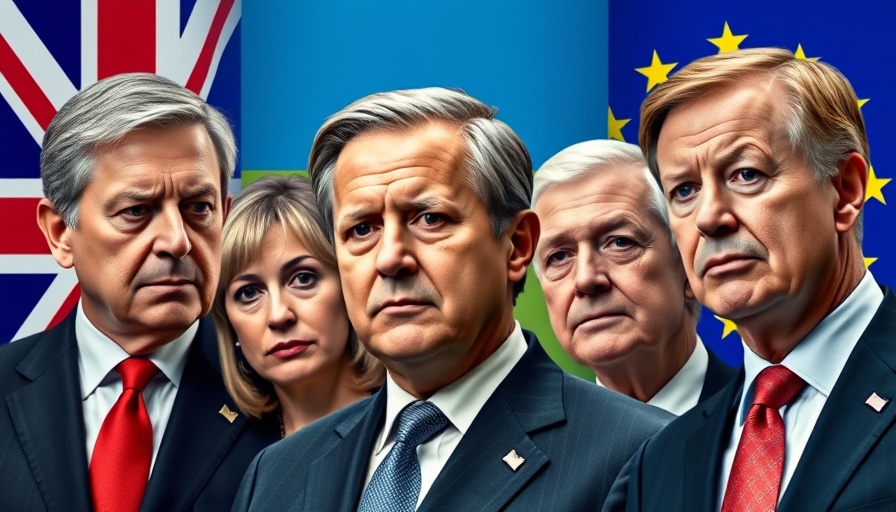
The Rise of European Solidarity for Ukraine
The ongoing conflict in Ukraine has brought European leaders together like never before, especially evident at a recent summit in Paris where President Zelensky received a warm reception from the leaders of France and the UK. This gathering signifies more than just diplomatic pleasantries; it’s a demonstration of unity against a common adversary—Russia. However, amidst the camaraderie lies a stark reality: a lack of concrete progress towards peace or military support.
In 'Europe's leaders unite in Paris to support Ukraine and President Zelensky,' the discussion dives into the complexities of international diplomacy amid rising tensions, highlighting insights that necessitate deeper analysis.
What’s at Stake? The Implications of European Unity
The discussions in Paris were centered around establishing a 'Coalition of the Willing'—a conceptual military force to support Ukraine in the event of a ceasefire. However, analysts note that without an actual ceasefire, these talks remain theoretical, leading to concerns about their effectiveness. Neither the security guarantees nor tangible military commitments have materialized, suggesting that solidarity alone isn't enough to create meaningful change.
Contrasting Perspectives Between Europe and America
A significant point of contention lies between Europe and the United States, particularly with the differing approaches to dealing with Russia. While European leaders express strong resistance against relaxing sanctions, voices from the American media, particularly conservative figures, ridicule these efforts as mere posturing. This disparity highlights the complexities of international relations in times of conflict, as well as the challenge facing European leaders in aligning their strategies with those of their American allies.
Looking Ahead: The Challenge of Diplomacy
As these leaders strive for a unified front, the pressing question remains: how will they translate their solidarity into tangible results for Ukraine? With ongoing negotiations that hinge on complex geopolitical factors, the upcoming months will be crucial. The need for a practical approach that balances military support, diplomatic negotiations, and effective communication with allies is paramount.
As the situation evolves, keeping informed on these developments is essential for anyone concerned about international stability and its implications for global peace. Whether you’re following these events out of personal interest or professional necessity, the dynamics at play are likely to have profound effects on the international landscape.
 Add Row
Add Row  Add
Add 




Write A Comment